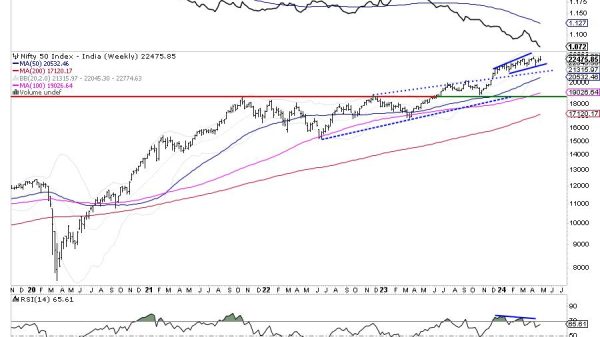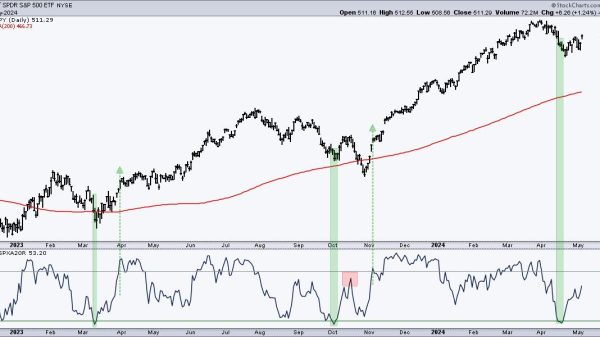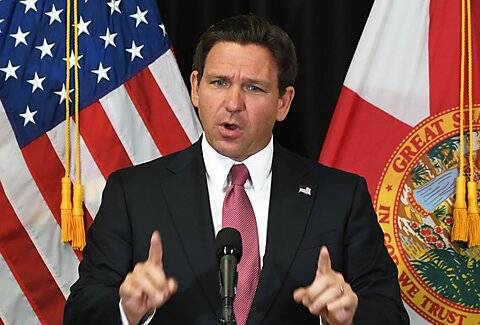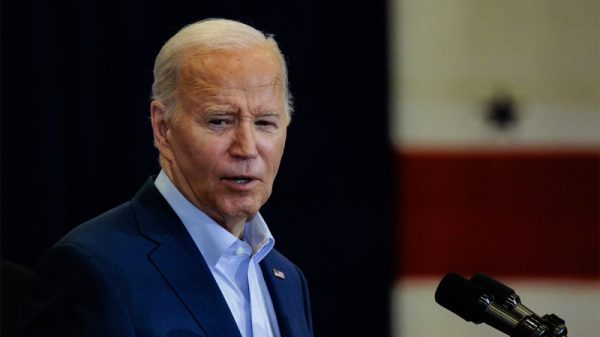Gary Winslett

All those Taylor Swift songs you listen to on Spotify may get taxed pretty soon if the 13th Ministerial Conference of the World Trade Organization (MC13) happening this week doesn’t go well. There are several items on their agenda but possibly the most valuable is about something we all do every day and that, for the last quarter century, we haven’t had to pay extra taxes on, and now we might. It’s called the moratorium on customs duties on electronic transmissions.
That may sound remote and technical, but if trade negotiators don’t get it right this week, the end of that moratorium could mean new taxes on all of the digital goods and services that we all enjoy. The Zoom call you make to your aunt in Spain, the design files that international companies use to coordinate their production, the advertisements that American firms sell abroad, all of it and much, much more could start getting taxed. That is unless trade negotiators can come to an agreement on that moratorium, but that’s looking dicey at the moment. We are not out of the woods on this.
Let’s back up. In 1998, when many of the digital technologies that we take for granted today like videoconference calls, downloadable songs, streaming movies, and much else were in their infancies (if they had even been born yet), the members of the World Trade Organization declared that they would refrain from issuing tariffs—in other words, taxing cross‐border electronic transmissions. That moratorium has been routinely extended at every WTO Ministerial Conference (big WTO meetings that happen about every two years) since. In that time, internet usage, and with it digital trade, has expanded enormously, to the benefit of consumers, workers, and citizens basically everywhere.
From 2005 to 2021, trade in digitally delivered services more than tripled, and information and communication technology services increased more than five‐fold. The United States is a powerhouse in services, especially digital‐friendly services. US services exports grew from $563 billion in 2010 to $897 billion in 2022, a 42 percent increase. A lot of that growth either is or could be connected to digital technology.
In 2019, the digital economy was roughly one‐tenth of the American gross domestic product, and from 2005 to 2019, it grew at more than double the rate of the nondigital economy. Outside of health care, some of the fastest‐growing jobs are data scientists, statisticians, and software developers. Services are where many of the good‐paying jobs of tomorrow will be. We thus have a duty to the American worker to ensure that the services they provide are treated fairly in global markets.
For their part, consumers get expanded access to digital services. A dad in Texas was able to hire a math tutor in Pakistan to help his kid over Zoom. Netflix subscribers now get a wide array of international shows like Squid Game (South Korea), Babylon Berlin (Germany), Money Heist (Spain), and The Great British Baking Show (UK). Elsewhere, I’ve dubbed this phenomenon ‘Peloton Globalization’ after American Pelotoners’ ability to get spin coaching digitally, including from instructors in other countries. Digitally delivered services are the fastest growing segment of international trade today.
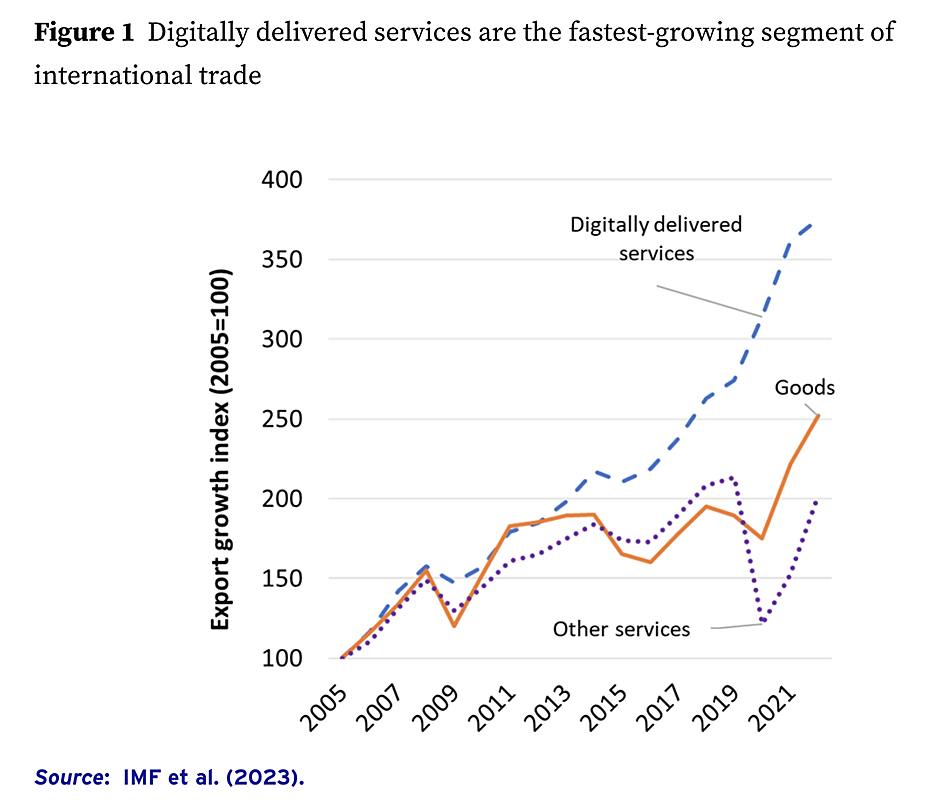
(Source: Tibor Hanappi, Adam Jakubik, and Michele Ruta, “Why the WTO Moratorium on Digital Tariffs Should Be Extended,” VoxEU, Centre for Economic Policy Research, February 26, 2024.)
A lot of that growth has been greatly facilitated by a lack of government controls and by a lack of taxation on cross‐border electronic transmissions. The WTO’s Information Technology Agreement played a massive role in promoting the growth of trade in digital services.
Furthermore, as I explained in a World Trade Review article in 2017, it was the most successful piece of trade liberalization under the auspices of the WTO since its creation nearly 30 years ago. As other scholars have noted, “WTO agreements such as the moratorium, by acting as a commitment device, contribute to lower policy uncertainty and facilitate investment and trade.” As I wrote about in a law review article here, unlike with physical goods, the international legal architecture around the digital trade in services is relatively new and evolving. Given all of this, the e‑commerce moratorium has been a commercially salubrious and politically routine matter for the WTO. At least until this year.
So who are this week’s trade anti‐heroes? Even though extending the moratorium has the support of a large majority of WTO members, India, South Africa, and Indonesia want to block that extension so that they can place new taxes on cross‐border electronic transmissions. The costs of implementing these taxes would significantly outweigh the revenue gains from them, meaning that not only do they hurt the growth of e‑commerce but they don’t even raise revenue particularly well (their ostensible purpose).
This is why, when scholars have looked at it, they have concluded that other taxes are far superior to taxes on electronic transmissions in terms of efficiency. Furthermore, once these taxes start to be used, it will be much harder to undo them. The e‑commerce moratorium ending is not a policy mistake that can easily be shaken off.
At past WTO ministerial conferences, the United States has been one of the global leaders in championing the e‑commerce moratorium. This time, we’re not doing that; leadership‐wise, we’re just a blank space. At the World Trade Organization, the countries at the leading edge of technological frontier (the United States, the European Union, Australia, Canada, Japan, and New Zealand among others) have been negotiating what is referred to as the Joint Statement Initiative.
Late last year, however, the Biden administration weakened America’s support for new trade rules that would facilitate greater international trade in services. Specifically, President Biden’s US Trade Representative Katherine Tai announced that the United States would no longer support efforts under the WTO’s Joint Statement Initiative to create new rules on source, data flows, and data localization. Meanwhile, the US Trade Representative’s Office appears to have abandoned America’s global leadership on the e‑commerce moratorium.
So then the question is why? Why is the US Trade Representative opening the door to other countries slapping tariffs on e‑commerce that benefits American workers, American businesses, and American consumers? Some critics argue that US trade policy reflects the views of populist, anti‐Big Tech groups who use other countries to tax and regulate American tech companies because their own domestic efforts have failed. That may be true.
Populists’ bad blood toward Big Tech could be an important contributing factor here, or that might be merely speculation and the populists’ critics need to calm down. But what’s not up for debate is that an end to the moratorium will hurt digital trade as well as the businesses and consumers that benefit from it.
The United States is a global cultural powerhouse (see: Swift, Taylor) and we benefit in all kinds of ways from all kinds of digital goods and services being able to move across borders. The United States, and more specifically the USTR’s office should enthusiastically champion the growth of digital services and should do everything it can to ensure that the WTO’s e‑commerce moratorium gets extended again. That’s the best end game of this week’s MC13.

